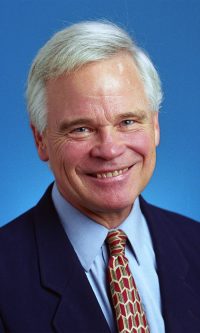DG MARTIN COLUMN: Deciding who leads a university
Who runs the university?
What university are you asking about?
Well, for example, Fayetteville State University, one of the 17 institutions that are part of the University of North Carolina, now known as the UNC System.

D.G. Martin
Clearly, Darrell Allison, the recently appointed chancellor of FSU, is the leader of that institution. But others share his authority. Allison reports to FSU’s board of trustees, a group of 13 that includes the student body president and other members appointed by the legislature and the UNC System’s board of governors.
But Allison reports directly and primarily to the president of the UNC System who has the power, subject to concurrence from the board of governors, to fire the chancellor.
If Allison has a single boss, it is the university president.
But if you ask any chancellor, he or she will tell you multiple people and groups must be pleased or the chancellor’s job is in jeopardy. He or she must also work with the institution’s trustees. While that board does not have the authority to discipline or dismiss its chancellor, an unhappy board would have the ear of the president who could take action.
It is complicated enough already, but other constituents must be pleased. Near the top of the list, some would argue, is the institution’s faculty, both its organizations and individual professors.
Unhappy students can also bring a chancellor down. So can passionate fans of the university’s athletic teams. Donors and alumni groups can feel that the chancellor is their employee and should listen to their directions.
All these interests and groups present potential problems for every new chancellor. Wise ones will understand that while you cannot always please everyone, you must always take care to minimize friction and consider different opinions and aspirations that relate to the university.
What is really tragic is for the situation to be poisoned from the beginning, But that is what has happened to Allison. From the time his appointment was announced, opposition and concerns about his lack of experience in higher education and the process of his appointment arose from the faculty senate, the school’s alumni association and the student government association’s president.
Previously, Allison served as a trustee at his alma mater, North Carolina Central University, and as a member of the system’s Board of Governors, where he chaired its committee on Historically Minority-Serving Institutions. In 2018, Allison became the national director of State Teams and Political Strategy for the American Federation for Children, an organization that promotes school choice and was once led by Betsy DeVos, former President Trump’s secretary of education.
From the beginning of the UNC System in the early 1970s, chancellors’ selection followed this procedure, taken from a UNC-Chapel Hill document describing the process:
The chair of the university’s Board of Trustees, will oversee the search committee to find the new chancellor. Committee members represent the University’s Board of Trustees, faculty, staff, students and alumni. Community members will be able to provide input throughout the process. The committee will make recommendations to the full Board of Trustees, which will vote on candidates to recommend to the UNC System president who will then recommend a candidate to the UNC Board of Governors, which will elect the new chancellor.
This traditional process assured that every constituency would have some voice in the selection process even though it would be the president who made the final recommendation to the system’s board.
This process was changed last year essentially to provide the president with the power to ignore the campus search process unilaterally and select any person to recommend to the Board of Governors.
The university president has every reason to seek a chancellor who will be a good partner. But it is a mistake not to bring into the selection process representatives of other groups the chancellor must serve.
As almost 50 years of university history has shown, a collaborative search process can find a person who will be the president’s strong partner without inflaming the kind of opposition that now faces Chancellor Allison.
D.G. Martin hosts “North Carolina Bookwatch” at 3:30 p.m. Sunday and 5 p.m. Tuesday on PBS North Carolina (formerly UNC-TV). The program also airs on the North Carolina Channel at 8 p.m. Tuesday and other times.

